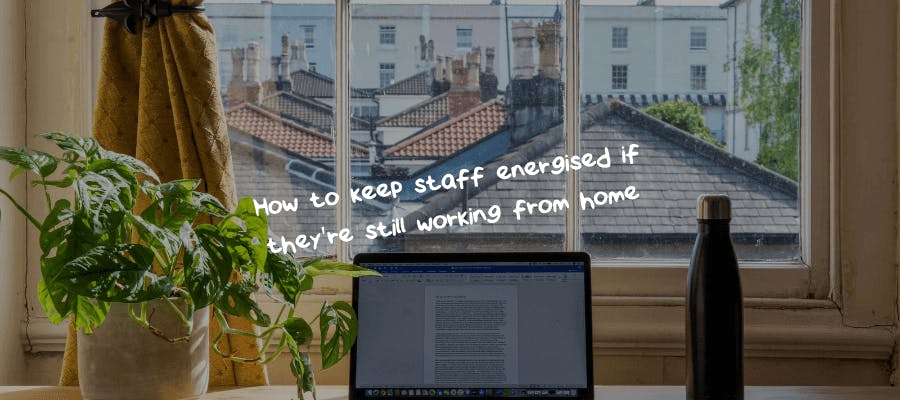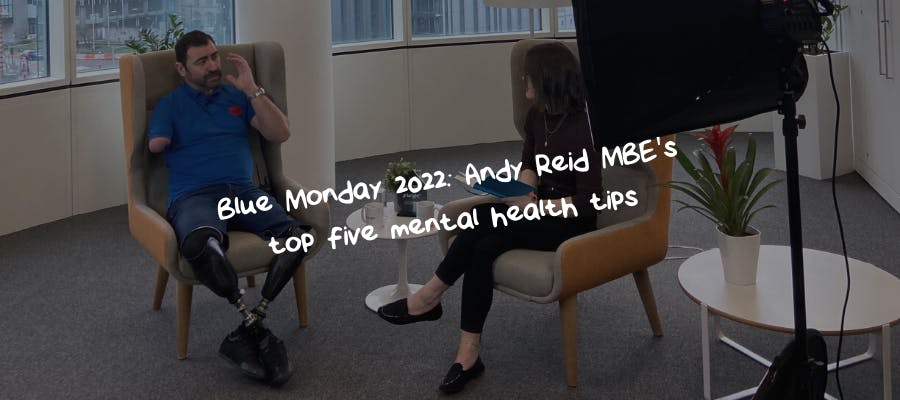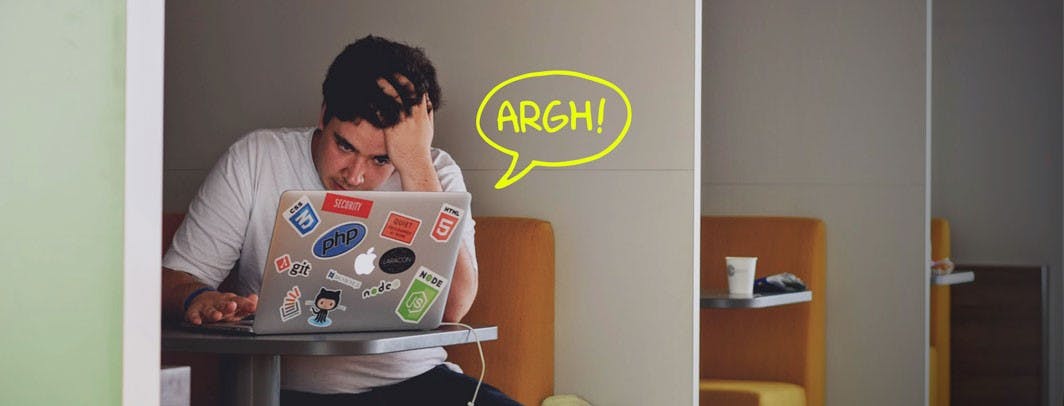First published on Monday, Sep 07, 2020
Last updated on Friday, Apr 30, 2021
As a result of lockdown, working from home (WFH) has become a reality for lots of us this year. And we all waxed lyrical about the pros at first—saving hours on the commute (not to mention the money), longer lie-ins, hitting a Zoom meeting with your business attire on top and your pyjamas out of shot underneath…
But if WFH has gone from being a temporary measure to a more permanent fixture in your business, then the novelty has probably worn pretty thin by now. Here are some practical tips to help keep your staff feeling upbeat and energetic if they’re WFH for the long-term:
Share your wider business plan
Staff are well aware of the company they work for when they’re rocking up to the office every day. But it can be easy to lose touch with what you’re doing and why when you’re WFH alone in your bedroom…
People need purpose in order to feel motivated, so keep staff in the bigger picture of your business. Remind them of your company’s vision and goals—and the important role they play in achieving them. Share the business’ success. Hold virtual one-to-ones to discuss their development.
Knowing their work is valuable and that they’re a part of something will help staff to feel inspired and invested in their jobs and your business.
Set specific and measurable goals
You can’t micromanage people WFH, but that’s no bad thing. Instead, monitor and measure people’s performances by setting targets and deadlines and getting stuff ticked off—and let go of exactly how your staff get there.
Not only will this help you to manage people from a distance, but being able to see their progress and achievements will give staff a sense of job satisfaction, which is necessary for staying positive and productive.
Encourage personal connections
Healthy and supportive relationships are the foundation for working well together and collaboration. And this is even more important in the current climate. When lockdowns and social distancing mean people can’t always see their family and friends, work relationships can help people cope with the ongoing stress and loneliness of the pandemic.
Hold virtual coffee breaks or ‘after work drinks’—or get on board with the now-classic Friday night Zoom quiz. We’re not saying everyone needs to be BFFs, but if your staff feel like part of a supported team then they’ll be hard workers and happy campers.
Embrace work hacks
In the spirit of work breaks, there’s a lot of evidence to support the idea that working in short bursts or ‘sprints’ helps people to stay productive and energised, too. You might have already heard of the Pomodoro method? It goes like this:
- Choose one task—something that needs your undivided attention.
- Set a timer for 25 minutes and immerse yourself in the task until the timer goes off.
- Put a tick on a piece of paper.
- Take a short break (make a cuppa, stretch your legs, anything that isn’t work-related).
- For every four ticks, take a longer break.
Set boundaries to avoid burnout
Yes, it’s called working from home… but it can also feel like living at work. One of the challenges with WFH is that sometimes you feel like you just. Can’t. Get. Away. From. It. All!
Everyone needs ‘down’ time to rest and recharge, so create some structure and boundaries in order to get the best out of your people. This could mean holding daily morning meetings. Encouraging team lunches. Setting an official time for you all to ‘leave the office’. And not allowing WhatsApp work talk to go on until 11pm…
Your staff will be much more focused, productive and energetic if they’re well-rested instead of trying to keep slogging away when they’ve hit a wall.
Bright Wellbeing & Counselling
And don’t forget, if you’re a Bright Wellbeing & Counselling customer, your staff can access all sorts of resources, from the 24/7 helpline to face-to-face counselling, if they need a little extra support while working from home.






